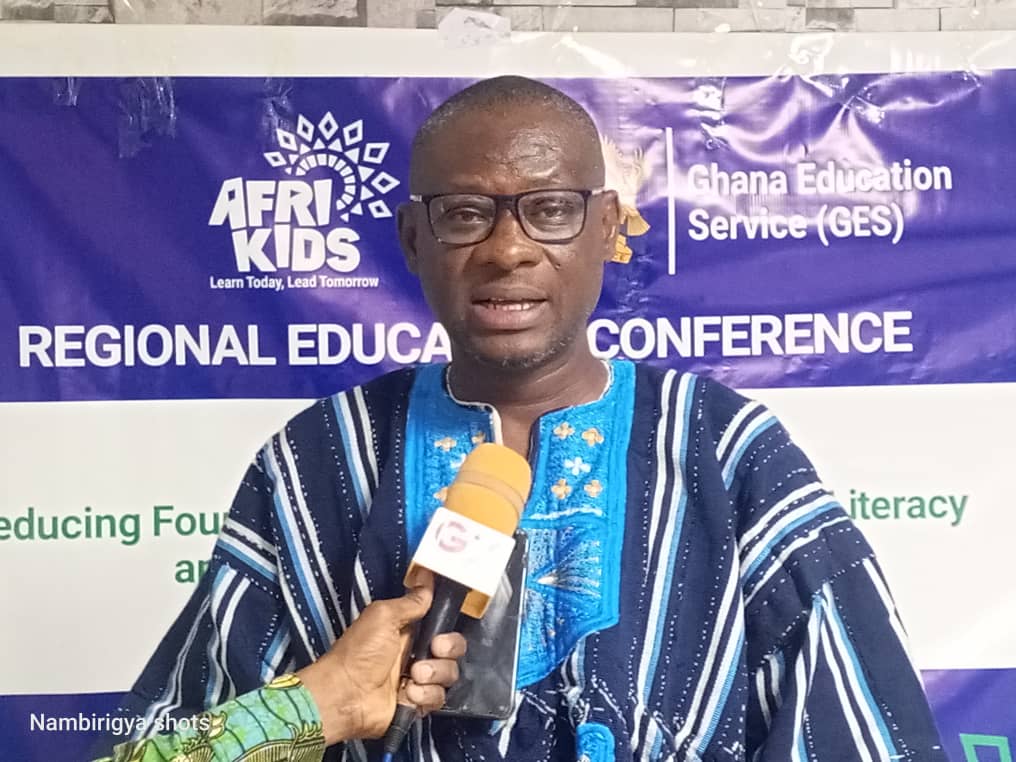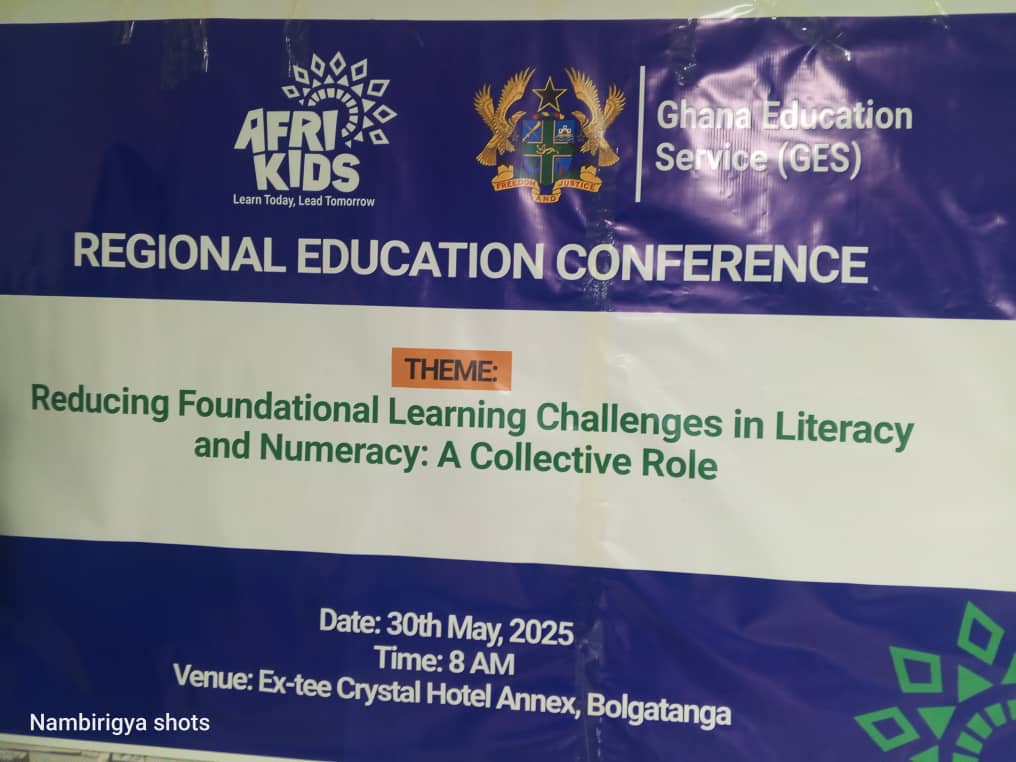AFRIKIDS Ghana, as part of its One Million Strategy, has held a Regional Education Conference to share the results of achievements, observations, and challenges with stakeholders to chart a common path for progress.
In September 2022, AFRIKIDS Ghana launched the One Million Smiles Strategy, aiming to raise funds for a more comprehensive approach that focuses on education, child protection, and health.
Three and a half years after the launch and roll out of the intervention, the child-centered organization last Friday held the Regional Education Conference with the theme “Reducing Foundational Learning Challenges in Literacy and Numeracy: a collective role,” to share the progress, challenges, and observations made thus far.
Over the period, the implementation of educational interventions has targeted more girls in districts such as Binduri and Builsa South in the Upper East Region, as well as the Mamprugu Moagduri District in the Northern East Region.
Speaking to the Media, the Country Director of Afrikids Ghana, David Pwalua said that there has been improvement in learning outcomes for children, a high level of school attendance, improved interest in girls participating in STEM-related subjects, and the adoption of play-related activities in delivering lessons.
“Over the period, we have seen some improvement in learning outcomes for children, we have recorded an unprecedented high level of school attendance, we have seen an interest and improved interest in girls participating in STEM-related subjects and we have also seen a remarkable improvement in teacher commitment towards teaching and using play-based methodologies to teach.
And overall, we think that we are on the right track in terms of achieving our outcomes and for that matter, we taught it wise to invite all those who have since participated in making this a possibility so that we can together share the results of what they have achieved so far, what their efforts have since realized, and then thank them. While we are thanking them, we also see this as a wonderful opportunity to commence a process of reflecting.” He said.

In reflecting on the outcomes, Mr. Pwalua admits there is more to be done, given the concerns over a significant number of children dropping out of school and the uneven distribution of teachers in many schools.
To address some of these challenges, including the unavailability of teachers in good numbers in some schools, the Country Director is expecting the posting of teachers to be decentralized.
Mr. Pwalua said the centralization has created a vacancy in some schools because some of the teachers from distant regions eventually leave after a year, thereby creating a vacuum. He is therefore making a case for teachers to be posted to schools in districts they come from to reduce the tendency of such persons to leave after a year.
“Daily, a huge number of our children are dropping out of the classroom. The rate at which the children are dropping out of this classroom is quite worrying, especially in these target districts of ours. We are worried that we still do not have enough teachers in our schools. In the districts where we operate, they are some of the underserved districts within the Northern sector, and so, teacher and student attrition are extremely high.”
“We will want to use this opportunity beyond reflection to also advocate. We are advocating strongly for the abolishment or the centralization of teacher placement, why are we saying so? These days, you will hardly find people in the various communities coming up after school and getting opportunities to teach in these schools.” He decried.
He further urged parents to take an active part in raising their children and not leave their role of supporting children in learning to teachers.

Mahama Imoro, Chief Nachina of the Kubori Traditional Area in Mamprugu Moagduri District, outlined some actions, including banning pass-out ceremonies and a raft of measures put in place to ensure children stay in school.
Meanwhile, the Ghana Education Service indicated that data from the National Standardized Test and other assessments reveal that a significant number of learners from underserved districts are struggling to acquire the fundamental skills in literacy and numeracy necessary for future learning.
The Service views the conference as a response and an opportunity to engage with evidence and data and learn from stakeholders to define realistic coping strategies and techniques to improve learning outcomes for every child.




